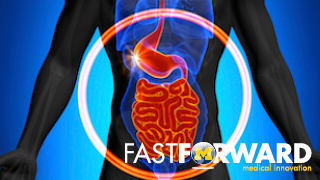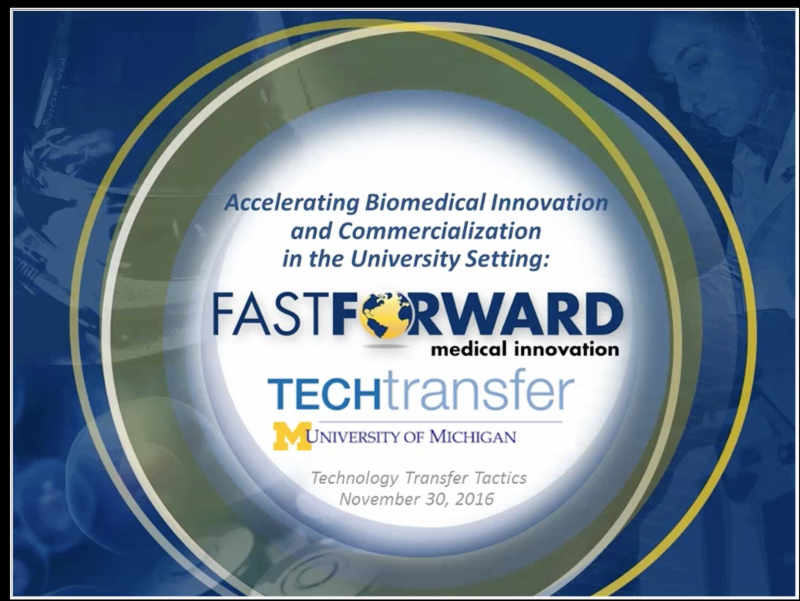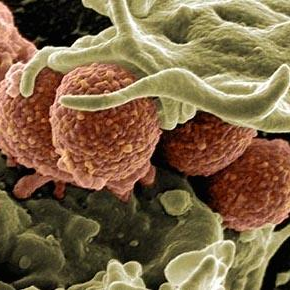|
A UNIT OF THE U-M MEDICAL SCHOOL OFFICE OF RESEARCH
|
New this month

|
 |
 |
EVENT  |
|
DATE  |
WHO SHOULD ATTEND  |
2017 Perspectives on Life Science Venture Investment Trends
 |
 |
Wednesday,
January 4, 2017
5:00pm-7:00pm
Ann Arbor SPARK Central Innovation Center
330 East Liberty
Downtown Ann Arbor
|
Academic researchers can learn more about the latest priorities of venture capital firms, as well as the tools and resources at the university and beyond, at this panel discussion hosted by FFMI and Ann Arbor Spark. The expert panel will be moderated by Tom Shehab, M.D., Partner, Arboretum Ventures, Ann Arbor, MI, and includes James Eadie, M.D., Sante Ventures, Austin Texas; Michael Henderson, M.D., Vice President of Asset Acquisition, Strategy, and Operations, BridgeBio, Palo Alto, CA; and Donna See, M.B.A., M.P.H., Allied Minds, New York, New York.
|
FFMI fullPACE: Introduction and Course Launch, Accuri Case Study
 |
 |
Wednesday,
January 11, 2017
5:30pm-7:30pm
Kellogg Eye Center, Oliphant Auditorium
|
Faculty, residents, and fellows can attend the kickoff of this 12-week course designed to teach biomedical innovation and entrepreneurship through experiential learning in small multidisciplinary teams. Instructor David Olson, Ph.D., Serial Life Science Entrepreneur and current U-M Venture Center Mentor-in-Residence, will go over course expectations and discuss his experience with Accuri Cytometers, Inc., a life sciences startup that he was involved in that was successfully acquired by another company.
The first hour of the class is open to the entire U-M community. |
FFMI fullPACE: Elevator Pitch, Executive Summary, & The Pitch Deck
 |

|
Wednesday, January 18, 2017
5:30pm-7:30pm
Kellogg Eye Center, Oliphant Auditorium
|
Faculty and FFMI fullPACE participants will learn the elements of creating and executing a successful pitch or presentation to venture capitalists or potential collaborators.
The first hour of the class is open to the entire U-M community. |
FFMI fullPACE: Case Study Workshop

|
 |
Wednesday,
January 25, 2017
5:30pm-7:30pm
Kellogg Eye Center, Oliphant Auditorium |
Faculty and FFMI fullPACE participants will study and discuss the failure of Exubera, an inhaled powder insulin product, and walk though the possible pitfalls of commercialization.
The first hour of the class is open to the entire U-M community. |
Launching Your Biomedical Innovation: MTRAC for Life Sciences Innovation Hub and New Statewide Resources
 |

|
Wednesday,
January 25, 2017
5:30pm-8:00pm
University of Michigan-Flint Innovation Incubator
432 N. Saginaw St., Suite 207
Flint, MI 48502
Dinner Provided
|
Biomedical researchers can attend this workshop that offers an in-depth look at the University of Michigan's new statewide MTRAC for Life Sciences Innovation Hub, including the program's Mi-Kickstart early-stage and Mi-TRAC mid-stage funding opportunities available for biomedical translational research projects across the state with high commercial potential. Register to attend by yourself or as a project team. CLICK HERE to RSVP. |
|

Dear Colleagues,
It's been an inspiring and productive year for the Fast Forward Medical Innovation team as we continue to help biomedical innovators across the University of Michigan campus accelerate their discoveries onto viable commercialization paths with the ultimate goal of getting into the
marketplace where they can
positively impact human health.
We have many success stories to share this year around our integrated initi
atives and
programs, and I invite you to CLICK HERE to browse our fiscal year 2016 m
etrics. Highlig
hts include:
169 invention reports this year, due in large part to FFMI's early and mid-stage funding programs, Mi-Kickstart and Mi-TRAC, the latter a partnership with the U-M Office of Tech Transfer. To date, these two programs have nurtured over 80 projects, with more in the innovation pipeline. And in July, MTRAC's funding-and scope expanded. The programs transformed into the MTRAC for Life Sciences Innovation Hub, and with additional investment from the Michigan Economic Development Corporation, the program now manages $4 million to support biomedical innovations across the entire state of Michigan. The program is now also open to faculty innovators in all U-M Schools and Colleges.
The Medical School received $82 million in industry funding this year - 15% of all the school's research funding. Our investigators engaged in translational research are garnering notice from industry partners, with facilitation from our Business Development team and key collaborators like the Business Engagement Center, resulting in substantive collaborations with biotech companies regionally, nationally, and globally.
To date, over 1,500 learners have participated in our education and training programs, and our Innovation and Entrepreneurship program is the #1 "Path of Excellence" track among medical students. Our commercialization education team is launching new programs for our biomedical innovation community virtually every week. So to reflect this fast pace, we are now referring to our programs as PACE - Program Accelerating Commercialization Education. PACE will continue to collaborate with groups like the College of Engineering's Center for Entrepreneurship and the Zell Lurie Institute, developing ground-breaking innovation and
commercialization education that serves the entire spectrum of biomedical innovators -
from faculty researchers to house staff, to medical and graduate students.
Best regards,
Kevin Ward, M.D.
Executive Director
|

U-M Fast Forward GI Innovation Fund Request for Proposals Coming in January
Three-year program targets discovery and development of future tech to help GI patients
 The
U-M Fast Forward Gastrointestinal (GI) Innovation Fund is a three-year, $500,000+ fund supported by a donation from entrepreneur Mary Petrovich and matched by the U-M Medical School's Department of Internal Medicine and its Division of Gastroenterology, as well as the College of Engineering, where Ms. Petrovich received her undergraduate degree. The three-year program, which began in 2016, targets discovery and development of future technologies to help patients suffering from gastrointestinal disease.
|
REQUEST FOR PROPOSALS COMING IN JANUARY
|
The U-M Fast Forward GI Innovation Fund supports early-stage research and commercialization activities such as those related to technology validation and establishing proof-of-concept, including pilot funding support for preliminary studies or development activities that will lead to broader GI product applications. Importantly, the fund seeks to engage interdisciplinary teams of researchers that leverage ideas and technologies across medicine, engineering, public health, and other key units engaged in biomedical research.
There are two funding tiers available. Tier I awards fund projects that address a discrete milestone that is critical to the advancement of research to the point of product development. Tier II awards fund projects with specific milestones for proof-of-concept and later-stage translational studies.
The FFMI team has assembled a U-M Fast Forward GI Fund Advisory Board of faculty, industry, and commercialization experts who review proposals and provide mentorship for the funded teams.
|

Mi-Kickstart Awards, made possible by the Michigan Translational Research and Commercialization for Life Sciences Innovation Hub, the William Davidson Foundation, and the Michigan Institute for Clinical & Health Research, enable biomedical researchers across the state to develop proof of concept for innovative technologies. This award is aimed to enhance the commercial potential of a technology to the point of translation and possible inclusion in Mi-TRAC or other research funding programs.
The new Mi-Kickstart teams are:
Michele Carney, M.D.
University of Michigan
"Positioning Device for Seated Neonatal Lumbar Puncture Procedure"
Maria Cascalho, M.D., Ph.D.
University of Michigan
"C3D Cellular and Acellular Vaccines for the Prevention and Treatment of Cancer"
Edward Castilo, Ph.D.
Beaumont Health System
"A Novel Method for Detecting Pulmonary Embolism from Non-Contrast 4DCT"
Gabriel Corfas, Ph.D.
University of Michigan
"Development of Small Molecule Positive Modulators of Ligand-Induced Ret Signaling as a Treatment for Small Fiber Peripheral Neuropathy"
John Farris, Ph.D. & Brent Nowak, Ph.D.
Grand Valley State University
"uCol - A Novel Female Urinary Collection Device for Reducing CAUTIs"
Michael Holinstat, Ph.D.
University of Michigan
"Analogs of OxyProtect (12-HETrE) for Inhibition of Platelet Function and Thrombosis"
Wenjun Ju, Ph.D., Raymond Trievel, Ph.D., & Jeanne Stuckey
University of Michigan
"New Drug Development for Chronic Kidney Disease"
Sophia Merajver, M.D., Ph.D.
University of Michigan
"Targeting RhoC to Prevent Metastasis"
Jeffrey Sakamoto, Ph.D. & Kendell Pawelec, Ph.D.
University of Michigan
"Scale-able Manufacturing of Nerve Guidance Scaffold Technology"
Chao-Yie Yang, Ph.d.
University of Michigan
"Development of In Vivo Chemical Inhibitors to Target the ST2/IL-33 Axis for Treating Graft-Versus-Host Disease"
|

Webinar Highlights How FFMI Helps Biomedical and Life Science Technologies Advance From "Idea to Impact"
Discussion details FFMI and U-M Office of Technology Transfer (OTT) Collaboration in the innovation process
 FFMI recently partnered with OTT to host a webinar titled
Accelerating Biomedical Innovation and Commercialization in the University Setting: The University of Michigan Fast Forward Medical Innovation Program. FFMI Managing Director, Connie Chang, M.B.A., and OTT Director of Licensing, Bryce Pilz, J.D., gave an overview of UM's Fast Forward Medical Innovation program and how collaboration between FFMI and OTT help accelerate innovation from bench to bedside.
CLICK HERE to listen to the webinar. The site may require a password - please use 44ua821.
|

Introducing Our New FFMI Staff Members
The FFMI team is excited to introduce two new staff members.
 Michelle Larkin joins us in a new Technology Mining position. She is largely responsible for outreach and represents the U-M MTRAC for Life Sciences Innovation Hub to schools and institutions across the state. Michelle has a Masters in Biomedical Engineering, five years experience working in the start-up med device industry, and most recently has been the Project Manager for the Coulter program at UM.
 Visha Krishnan is our new FFMI Senior Business Analyst working on commercialization funding and industry engagement opportunities. Visha most recently was part of the licensing team of Henry Ford Innovations and prior to that was Director of Market Discovery at The Searchlite, a venture development and consulting firm in Ann Arbor. Visha has a B. Tech. in Industrial Biotechnology from Anna University in Chennai, India, and a Ph.D. in Chemistry from the University of Michigan.
Welcome, Michelle and Visha!
|

New Sensor Device Helps Detect Sepsis
Point-of-Care platform measures redox potential
 Redox reactions lie at the heart of nearly all of the body's responses occurring at times of stress, especially during inflammatory responses involved in critical illnesses and injury. That's why determining redox balance is crucial to understanding, evaluating, and treating these conditions. Redox is particularly critical in sepsis, an overwhelming immune response to a bacterial infection that affects more than one million people. Redox reactions lie at the heart of nearly all of the body's responses occurring at times of stress, especially during inflammatory responses involved in critical illnesses and injury. That's why determining redox balance is crucial to understanding, evaluating, and treating these conditions. Redox is particularly critical in sepsis, an overwhelming immune response to a bacterial infection that affects more than one million people.
Current methods do not detect redox in patients in a clinical setting, instead relying on secondary measurements that often do not reflect the current, real-time data that is so vital for optimal evaluation and treatment. Additionally, there isn't an available product that delivers a direct measurement of redox in whole blood, which is valuable information that helps provide more targeted care for the patient.
University of Michigan's Rodney C. Daniels, M.D., has developed a redox point-of-care (POC) platform, a sensor device that uses electrodes to directly measure blood and fluid redox potential at the patient's bedside to improve patient monitoring and to aid in guiding therapeutic solutions.
"Our redox POC platform is the first to allow measurement of redox in whole blood and biological fluids in the clinical setting, rapidly, in real-time, and at the point of care where it is most needed to affect change in those with sepsis," Dr. Daniels noted.
Sepsis affects more than one million people per year, costing more than $20 billion annually and claiming the lives of 30 percent of those affected. The redox POC platform would allow redox measuring in real time in a clinical setting, providing valuable information in early evaluation and treatment.
"Through continued POC platform development and testing, the redox platform will be well-poised for clinical and commercial translation as a valuable analytic and therapeutic guide for physicians treating a variety of patients, from those with organ dysfunction to those with severe septic shock," Dr. Daniels said.
|

The 2017 Grand Challenge will fund integrated science teams that can develop and deliver innovative solutions to improve patient outcomes after severe traumatic brain injury (TBI).
Up to $600,000 is available to fund the development of diagnostic, device, therapeutic, or health IT solutions that address the initial "golden hours" of care after severe TBI (generally the first 48 hours). Treatment administered during this critical timeframe can determine patient survival and have a significant effect on long-term function and disability.
|
NCRC Building 18, Dining Hall
|
To be considered for funding, you must attend the Grand Challenge event.
|
|
|
|
|